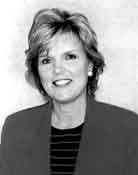 | The Reverend Doctor Cathy Northrup was born in Ft. Meade, MD, and was raised in a variety of places in the United State and Germany, as her father was in Counter Intelligence with the Army. She graduated summa cum laude, Phi Beta Kappa, from Hamline University in St. Paul, MN, with a double major in English and Religion. She graduated from Georgetown Law Center in Washington, DC, and practiced law with the Federal Reserve Board for a number of years before attending Union Theological Seminaryin Richmond, VA. She graduated from Union, and served several churches in North and South Carolina, at the same time obtaining her Doctor of Ministry from Princeton Theological Seminary in Princeton, NJ. Dr. Northrup is currently the Pastor/Head of Staff of First Presbyterian Church, Wichita, KS. She is married and has two black Labrador dogs who were rescued from abusive situations. You can contact Dr. Northrup at cnorthrup@firstpresbywichita.org or by phone at (316) 263-0248, ext. 26. |
Religion
2011-01-01 10:18:00
How is accountability for a sin determined?
Answer: Protestants and Presbyterians have typically not separated sin into classes. We understand sin to be sin, and as the Bible says, we understand that all are sinners and have fallen short of God’s glory. Our forebear as Presbyterians, John Calvin, wrote in his classic Institutes of the Christian Religion that distinctions such as mortal and venial sins are invalid. He cited various Biblical passages to support this, in particular, Jesus’ words in the Sermon on the Mount, “therefore, whoever breaks one of the least of these commandments, and teaches others to do the same, will be called least in the kingdom of heaven.” Calvin further argued that all sin is rebellion against God and thus great.
Yet, in that same classic work, Calvin did recognize the reality of the circumstances of sin. Some are public, and some are secret, and some have much greater consequences and must be dealt with in a different way. Calvin wrote about this in his section as to how persons in the church should be disciplined for their sins. Our own Westminster Catechism recognizes this as well. In questions 150 and 151, the catechism notes that some sins have what it calls “aggravations.” These are from the person offending, the parties offended, the nature and quality of the offense, and the time and place of the sin.
Personally, I also believe sin is sin and against God’s will for us; we should seek to avoid all sin. We are to let God’s Spirit bloom and grow within us so that we become more and more like Christ. It may be that some sins have greater visible consequences than others and need a different way to be handled, but all have some sort of consequences for us, for others, and for God. When Paul wrote of sin in his letters, for example, in the same breath, he would include sins like gossip and slander right along with adultery and murder. I believe this is what Jesus was trying to say when he said, again in the Sermon on the Mount, “you have heard it said, but I say to you…..” We are all called to “better righteousness.”


